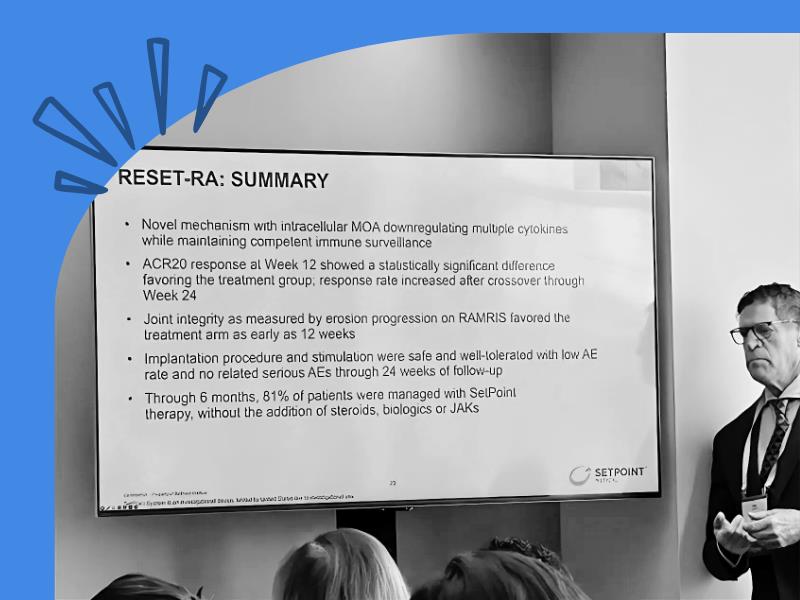NSAIDs (Nonsteroidal Anti-inflammatory Drugs)
NSAIDs are the most common drugs used to treat inflammation, pain, and swelling. These drugs can treat mild arthritis pain, but they won’t help with skin psoriasis outbreaks or nail problems.
NSAIDs are generally safe to use for minor flares of pain, but they do have many possible side effects if you take them for a long time or in high doses. Only use them as your doctor or nurse directs. NSAIDs can raise your risk of gastrointestinal (stomach) bleeding, like ulcers, or cardiovascular problems. So ask your doctor or nurse how much and how often you can take NSAIDs for pain.
NSAIDS for Arthritis Pain: What do we already know?
NSAIDs prevent the creation of fatty acids made by your body called prostaglandins. These acids are the products of COX-1 and COX-2 enzymes and play a role in inflammation and pain. Some NSAIDs block both COX-1 and COX-2, although COX-1 also helps keep your stomach acid under control. Meloxicam (Mobic) is an NSAID that blocks Cox -1 and Cox -2 receptors but preferentially blocks Cox-2. Celecoxib (Celebrex®) is an NSAID that only blocks Cox-2 receptors. They may be gentler on your stomach than other NSAIDs.
Common NSAIDs you might take for arthritis pain:
- Aspirin
- Ibuprofen (Advil®, Motrin®)
- Naproxen sodium (Aleve®)
- Celecoxib (Celebrex®)
- Diclofenac sodium (Voltaren®)
- Indomethacin (Indocin®)
- Ketoprofen (Actron®, Orudis®)
- Piroxicam (Feldene®)
- Meloxicam (Mobic®)
Some NSAIDs are available over the counter, generally at lower doses for mild pain. These include aspirin, ibuprofen and naproxen sodium. You can also buy generic or “store brand” versions of these medicines.
Some NSAIDs are available over the counter, generally at lower doses for mild pain. These include aspirin, ibuprofen and naproxen sodium. You can also buy generic or “store brand” versions of these medicines.For stronger pain, there are higher doses of NSAIDs available by prescription. Some NSAIDs are only available by prescription. Don’t take an over-the-counter NSAID if you’re already taking a prescription NSAID. You could easily take too much medicine and put yourself at high risk for side effects like stomach pain, bleeding, fluid retention or kidney problems.
For stronger pain, there are higher doses of NSAIDs available by prescription. Some NSAIDs are only available by prescription. Don’t take an over-the-counter NSAID if you’re already taking a prescription NSAID. You could easily take too much medicine and put yourself at high risk for side effects like stomach pain, bleeding, fluid retention or kidney problems.
No one NSAID is more effective than others. It’s up to you and your rheumatologist to decide which one may be right for you to take for your arthritis pain. Your rheumatologist will decide which NSAID to prescribe based on your personal history of NSAID use, the potential for side effects and other diseases or conditions you may have.
Why Am I Taking a NSAID?
You may need to take an NSAID for joint pain or stiffness from time to time. Or, your rheumatologist may prescribe a stronger NSAID for your pain if needed. You may not have to take NSAIDs long term. You may just need to take an NSAID on days when your pain feels worse than normal. If you overdo physical activity on certain days and ache afterward, an NSAID may be helpful for relieving your short-term pain.
If you have osteoarthritis (OA) in addition to your primary disease, you may need to take NSAIDs to help you control your OA pain– which might be caused by a different process in your body.
Some people control their joint pain, inflammation or stiffness with their DMARDs, biologics or steroids. So you may not need NSAIDs at all or only once in a while. Other people may find that DMARDs or biologics don’t work well enough to control their pain, and need to take an NSAID too. For others, an NSAID is the only treatment they need. It depends on your body, your day-to-day pain, and how well your other drugs are working to keep your disease under control.
Since taking NSAIDs regularly for pain can cause serious side effects, talk to your rheumatologist about the best way to ease your pain. He or she may suggest that you keep NSAIDs on hand just in case you need them.
Lots of NSAIDs are available over the counter (OTC) in your local drugstore or supermarket, including ibuprofen (Advil®), naproxen sodium (Aleve®) and aspirin. Even these OTC pills can have serious side effects, especially if you take them often. Talk to your rheumatologist about your options for managing your pain. Also, make sure your rheumatologist knows everything you are taking for your pain, even OTC drugs or supplements.
Side Effects of NSAIDs
NSAIDs can be safe depending on your age and other illnesses that might affect whether you can take NSAIDs. If you have hypertension, diabetes, cardiovascular disease, history of ulcers or any type of kidney problems you may not be able to take even OTC NSAIDs or must be followed very closely by your doctor.
The most common side effect of taking NSAIDs is stomach pain or heartburn. Others include:
- Bleeding
- Kidney problems
- Raised blood pressure
- Fluid retention
- Increased risk of heart attack or stroke
- Ringing in your ears
- Lightheadedness or dizziness
- Headaches
- Allergic reactions, or liver problems (rarely)
If you notice any of these symptoms, get medical care right away:
- Vomiting
- Swollen ankles, hands or feet from fluid retention
- Black or bloody stool
- Unusual weight gain
Your risk of side effects goes up if you take higher doses of NSAIDs or take these drugs over long periods of time. Also, people who are older or have a history of ulcers may be at higher risk for stomach problems with NSAID use. Talk to your rheumatologist about your options for managing chronic pain.Celecoxib and meloxicam treat arthritis pain as effectively as other NSAIDs, but because they only block COX-2 and not COX-1, they may be easier on your stomach. COX-1 is a prostaglandin that protects the lining of your stomach. So celecoxib and meloxicam may ease your pain and reduce risk of stomach pain or ulcers.
Celecoxib and meloxicam treat arthritis pain as effectively as other NSAIDs, but because they only block COX-2 and not COX-1, they may be easier on your stomach. COX-1 is a prostaglandin that protects the lining of your stomach. So celecoxib and meloxicam may ease your pain and reduce risk of stomach pain or ulcers.
How to monitor for NSAID side effects
Let your doctor know if you have unpleasant side effects like heartburn, stomach pain or fluid retention. Don’t “grin and bear it.” It is important to know that many times bleeding ulcers from NSAIDs have no symptoms at all. So it is important to be monitored by your physician for any drop in your red blood cell count or darkening of the color of your stools. Your rheumatologist may be able to lower your dose or suggest another medicine for your pain. Don’t try to treat severe stomach pain or heartburn on your own.
Keep up with all of your regular check-ups so you can track your blood pressure and other vital signs while you take NSAIDs. Taken over a long time, these drugs can raise your risk of serious heart problems. If you already have high blood pressure, it’s important to check your blood pressure often and if it is increased you may need to stop or adjust the dose of the NSAID. Increased blood pressure can damage your kidneys and increase your risk for a heart attack or stroke.
What can I do to help prevent or ease NSAID side effects?
If you have side effects from your NSAIDs, such as stomach pain or heartburn, you may be able to add another medicine to lower your stomach acid. There are many drugs called proton pump inhibitors that can reduce your risk of ulcers. They include:
- omeprazole (Prilosec®, Prilosec® OTC)
- lansoprazole (Prevacid®, Prevacid® IV, Prevacid® 24-Hour)
- dexlansoprazole (Dexilent®, Dexilent Solutab®)
- rabeprazole (Aciphex®, Aciphex® Sprinkle)
- pantoprazole (Protonix®)
- esomeprazole (Nexium®, Nexium® IV, Nexium® 24 HR)
- omeprazole/sodium bicarbonate (Zegerid®, Zegerid® OTC)
Some of these can be purchased over the counter and others you may need a prescription. Some simple ways you may ease NSAIDs’ side effects include:
- Take the lowest possible dose you need to manage your pain.
- Take your medicine with food, such as your normal meals or a snack. It should be noted that taking NSAIDs with food will not lower your risk of an ulcer. It may increase the tolerability of the NSAID but it won’t reduce the toxicity.
- Try coated aspirin instead of uncoated. Please note, this may only increase the tolerability of aspirin and not decrease the risk of an ulcer.
- Avoid the long-lasting, “once-a-day” NSAIDs, because they stay in your system for a longer time than quick- acting ones.
- Consider using acetaminophen (Tylenol®) for occasional joint pain instead of NSAIDs. It has some side effect risks too, so talk to your doctor before you take any OTC drug for arthritis pain.
- Discuss with your doctor the synergistic effect of acetaminophen (Tylenol®) with NSAIDs to allow the minimum NSAID dose possible.
NSAIDs and Pregnancy
NSAIDs are likely safe to use during pregnancy, although you should not use them in your third trimester. They are a good option to ease your symptoms during the first half of your pregnancy.
In high doses NSAIDs are known to impair fertility. Some studies suggest that taking NSAIDs in the early stages of pregnancy could increase the risk of miscarriage. However, they are considered safe to use in the first two trimesters, with no known risk for low birth weight, congenital birth defects or premature delivery. In the third trimester, there is evidence that NSAIDs could decrease amniotic fluid, which surrounds and protects your baby in the uterus. Some evidence shows that these drugs, if used in the third trimester, might lead to fetal pulmonary hypertension, a serious risk for your unborn baby.
They are safe to use during breastfeeding.
NOTE ABOUT ASPIRIN: The American College of Obstetrics and Gynecologists (ACOG) now recommend that all women with autoimmune disease, particularly lupus, take a baby aspirin, 81mg, every day in pregnancy. Taking this low dose of aspirin every day has been shown to decrease the risk for preterm birth and preeclampsia. It’s important to start this before week 16 of your pregnancy to get this benefit. Higher doses of aspirin are generally not prescribed in pregnancy. For pain, stick to acetaminophen (Tylenol®) or other NSAIDs.





